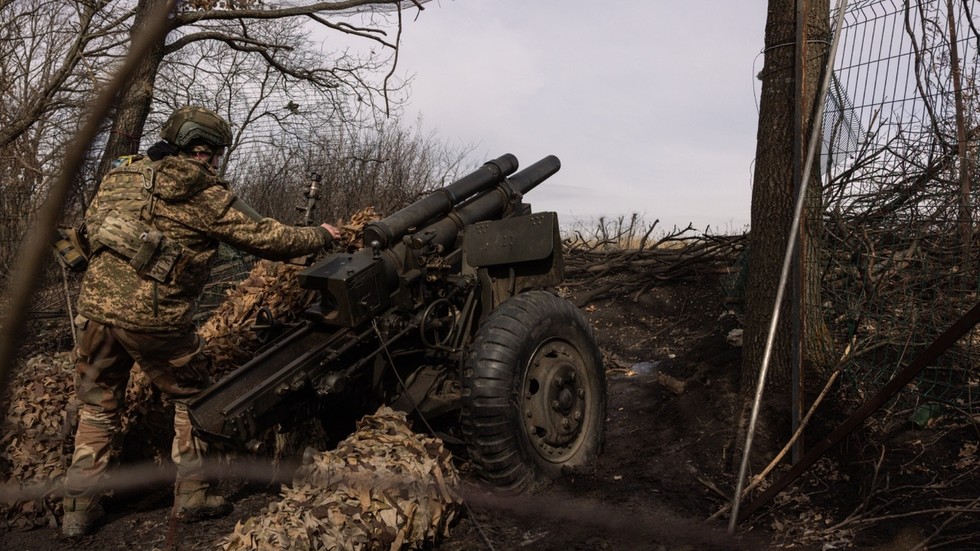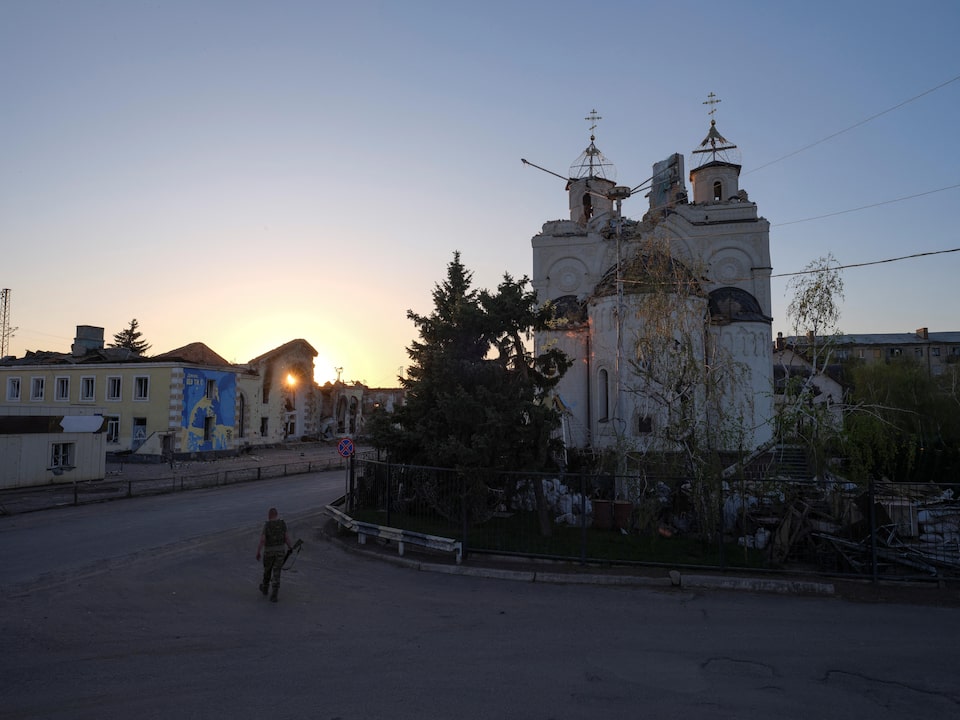
Russia and Ukraine have accused each other of breaching a one-day Easter ceasefire announced by Russian President Vladimir Putin, with both sides reporting hundreds of attacks. The ceasefire, intended to halt hostilities until midnight Moscow time (10 PM Irish time) on Sunday, April 20, 2025, was meant to mark Orthodox Easter, which coincides with Western Easter this year.
Putin, who launched a full-scale invasion of Ukraine in February 2022, ordered Russian forces to cease all military activity along the front line. However, Ukrainian President Volodymyr Zelensky claimed Russia continued artillery barrages overnight and launched 26 assaults from midnight to midday local time on Sunday.
"Either Putin does not have full control over his army, or the situation proves that in Russia, they have no intention of making a genuine move toward ending the war, and are only interested in favourable PR coverage," Zelensky wrote on X.

 www.rt.com
Despite the accusations, Ukraine's military noted a decrease in frontline activity, a sentiment echoed by some Russian military bloggers. Independent verification of these battlefield reports remains unavailable.
www.rt.com
Despite the accusations, Ukraine's military noted a decrease in frontline activity, a sentiment echoed by some Russian military bloggers. Independent verification of these battlefield reports remains unavailable.

 kathmandupost.com
kathmandupost.com

 kathmandupost.com
Last month, Ukraine accepted Trump’s proposal for a 30-day truce, which Russia rejected due to unresolved verification issues. Both nations also agreed to pause attacks on energy targets and maritime operations, but each has accused the other of violations.
kathmandupost.com
Last month, Ukraine accepted Trump’s proposal for a 30-day truce, which Russia rejected due to unresolved verification issues. Both nations also agreed to pause attacks on energy targets and maritime operations, but each has accused the other of violations.

 kathmandupost.com
Zelensky reiterated Kyiv’s willingness to extend the ceasefire for 30 days, emphasizing that Ukraine would mirror Russia’s actions. Putin, meanwhile, instructed General Valery Gerasimov to respond "in full" to any Ukrainian violations.
kathmandupost.com
Zelensky reiterated Kyiv’s willingness to extend the ceasefire for 30 days, emphasizing that Ukraine would mirror Russia’s actions. Putin, meanwhile, instructed General Valery Gerasimov to respond "in full" to any Ukrainian violations.

 news.sky.com
"We know what we are defending. We know what we are fighting for," Zelensky said in a video posted on social media, standing before Kyiv’s Saint Sophia Cathedral.
news.sky.com
"We know what we are defending. We know what we are fighting for," Zelensky said in a video posted on social media, standing before Kyiv’s Saint Sophia Cathedral.

 kathmandupost.com
kathmandupost.com

 kathmandupost.com
The European Union expressed skepticism, noting Russia could end the war immediately if it chose to. UN spokesman Stephane Dujarric reaffirmed support for efforts toward a peace that respects Ukraine’s sovereignty and territorial integrity.
kathmandupost.com
The European Union expressed skepticism, noting Russia could end the war immediately if it chose to. UN spokesman Stephane Dujarric reaffirmed support for efforts toward a peace that respects Ukraine’s sovereignty and territorial integrity.

 kathmandupost.com
As mutual distrust persists, the brief Easter truce has highlighted the deep challenges in achieving a lasting resolution to a conflict that has claimed countless lives and reshaped global geopolitics.
kathmandupost.com
As mutual distrust persists, the brief Easter truce has highlighted the deep challenges in achieving a lasting resolution to a conflict that has claimed countless lives and reshaped global geopolitics.
Putin, who launched a full-scale invasion of Ukraine in February 2022, ordered Russian forces to cease all military activity along the front line. However, Ukrainian President Volodymyr Zelensky claimed Russia continued artillery barrages overnight and launched 26 assaults from midnight to midday local time on Sunday.
"Either Putin does not have full control over his army, or the situation proves that in Russia, they have no intention of making a genuine move toward ending the war, and are only interested in favourable PR coverage," Zelensky wrote on X.
Russia's Claims and Counteraccusations
Russia's Defense Ministry reported over 1,000 Ukrainian ceasefire violations, including 444 artillery attacks and more than 900 drone strikes targeting Russian positions, including Crimea and the border regions of Bryansk, Kursk, and Belgorod. The ministry claimed these attacks caused civilian casualties and infrastructure damage.
Over 1,300 Easter truce violations by Ukraine – MOD
Russian positions have been attacked numerous times by the Kiev’s forces, the Defense Ministry has said

Russia and Ukraine accuse each other of breaking one-day Easter ceasefire
Zelenskiy accuses Moscow of using the truce for propaganda as the Kremlin claims over 1,000 Ukrainian ceasefire violations.
International Reactions and Ceasefire Context
The failure to uphold the Easter ceasefire underscores the challenges facing U.S. President Donald Trump’s efforts to broker a lasting peace deal in what he calls the "bloodbath" of the Ukraine war. Trump and Secretary of State Marco Rubio warned on Friday that the U.S. might abandon mediation efforts without swift progress.
Russia and Ukraine accuse each other of breaking one-day Easter ceasefire
Zelenskiy accuses Moscow of using the truce for propaganda as the Kremlin claims over 1,000 Ukrainian ceasefire violations.

Russia and Ukraine accuse each other of breaking one-day Easter ceasefire
Zelenskiy accuses Moscow of using the truce for propaganda as the Kremlin claims over 1,000 Ukrainian ceasefire violations.

Ukraine war latest: Two possible explanations for Russian attacks despite Putin's 'Easter truce', Zelenskyy says
Ukrainian President Volodymyr Zelenskyy says Russian drone strikes, shelling and attempts to advance continue on Easter Sunday, despite Vladimir Putin's declaration of a 30-hour "Easter truce" yesterday. Follow the latest below.

Russia and Ukraine accuse each other of breaking one-day Easter ceasefire
Zelenskiy accuses Moscow of using the truce for propaganda as the Kremlin claims over 1,000 Ukrainian ceasefire violations.
Broader Implications
Russia currently controls roughly one-fifth of Ukraine, including Crimea (annexed in 2014) and parts of Luhansk, Donetsk, Zaporizhzhia, and Kherson. Putin framed the ceasefire as a test of Ukraine’s commitment to peace, thanking Trump, Chinese President Xi Jinping, and BRICS leaders for their mediation efforts.
Russia and Ukraine accuse each other of breaking one-day Easter ceasefire
Zelenskiy accuses Moscow of using the truce for propaganda as the Kremlin claims over 1,000 Ukrainian ceasefire violations.

Russia and Ukraine accuse each other of breaking one-day Easter ceasefire
Zelenskiy accuses Moscow of using the truce for propaganda as the Kremlin claims over 1,000 Ukrainian ceasefire violations.











